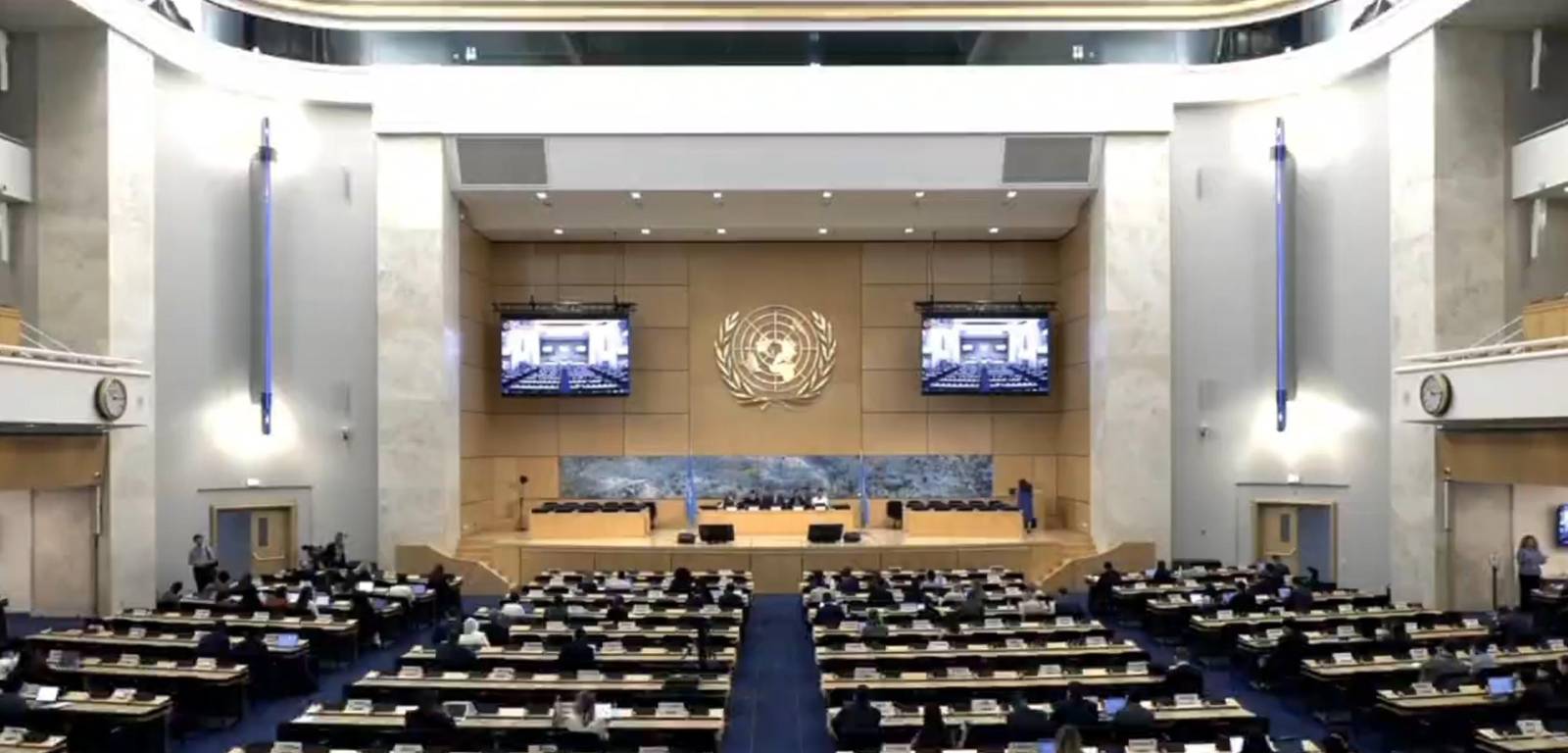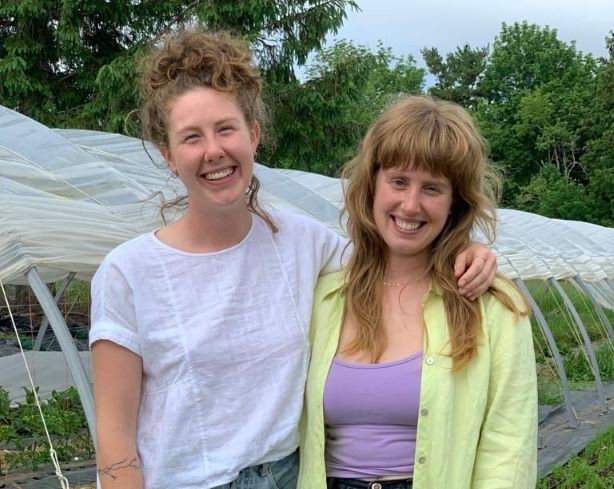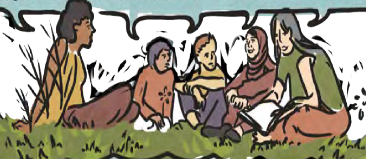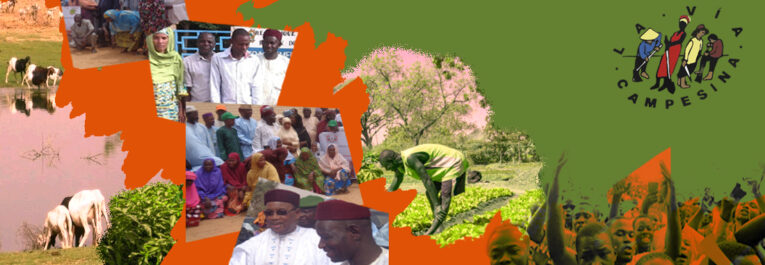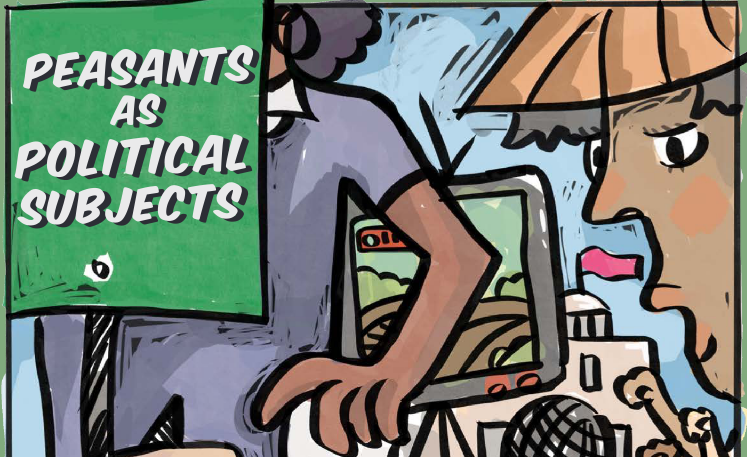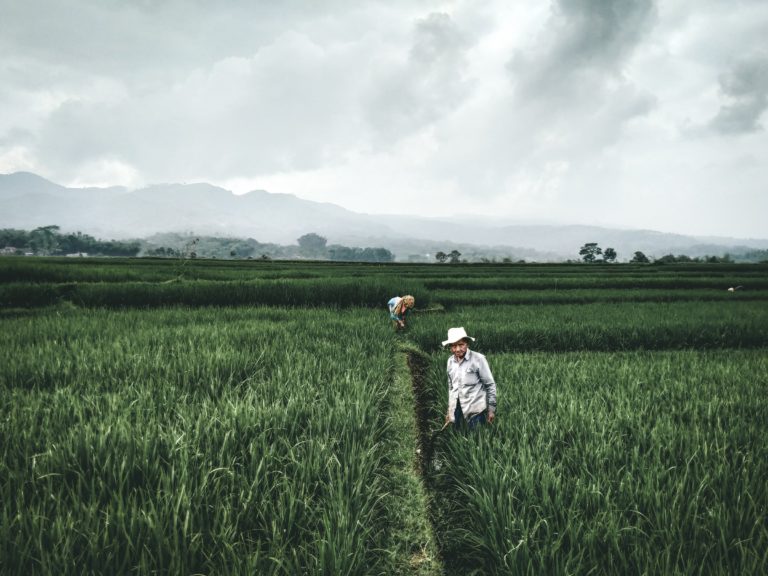Systemic Challenges and Good Practices in Rural Areas – The 2nd Report of the UN Working Group on UNDROP
This article was originally published on the website of La Via Campesina on 25 September 2025 (available here).
Seven years after the adoption of the United Nations Declaration on the Rights of Peasants and Other People Working in Rural Areas (UNDROP), the situation remains mixed: undeniable legal and political progress has been made, but violations and systemic threats persist, and in some cases are even worsening. At the 60th session of the Human Rights Council, La Via Campesina—represented by Alberto Silva for the Swiss organization Uniterre and on behalf of CETIM—and FIAN—represented by Alfonzo Simon (World Forum of Fisher Peoples, Panamanian organization SITRAMAR)—emphasized the importance of placing peasants and rural communities at the heart of public policies and of protecting their territorial and land rights in the face of growing threats.
The second report of the UN Working Group presents a striking overview: land and ocean grabbing, “green grabbing” in the name of carbon offsetting, violence and criminalization of defenders, and persistent discrimination against rural women. Yet, alongside these challenges, the report also highlights positive experiences, where land reforms, innovative judicial mechanisms, and agroecological initiatives demonstrate that it is possible to put peasants at the center of public policies. Between mounting threats and inspiring good practices, this report underscores the urgency of collective action to make UNDROP a genuine roadmap for dignity and social, economic, and climate justice in rural areas.
Summary of the 2nd Report on UNDROP: Issues and Recommendations
From land and ocean grabbing to violence, criminalization, and repression of peasants and fisherfolk, to seeds, climate crises, discrimination, and social protection, the latest report of the Working Group provides a panorama of the systemic challenges faced by rights-holders under UNDROP.
The report warns in particular of the rise of “green grabbing,” that is, the appropriation of land for carbon offsetting purposes. Under the guise of sustainable environmental protection, fossil fuel giants such as Shell continue to invest massively in offset projects, thereby reinforcing transnational corporations’ (TNCs) control over land and the financialization of nature. Today, such “green grabbing” practices account for around 20% of all large-scale land acquisitions, directly impacting rural communities. The same applies to ocean grabbing: the blue economy agenda (with trade agreements and marine spatial planning) is leading to the commodification of oceans and the appropriation of customary commons by TNCs.
“Globally, 1% of farms now control 70% of the world’s agricultural land, while 84% of farms control only 12% of agricultural land. The richest 10% of the rural population hold 60% of the value of agricultural land, while the poorest 50% hold just 3%.” cf. Report A/HRC/60/33 of the Working Group on the Rights of Peasants, Part II.F on the concentration of land ownership.
In a context of strong competition for land and resources, rural communities are subjected to violence, forced evictions, destruction, and repression.
The rights of peasant women, notably in terms of land ownership, political participation, and access to resources, are still widely violated due to patriarchal norms, discriminatory legal frameworks, and intersecting oppressions linked to gender, rurality, class, or ethnicity. Peasant women face exclusion from decision-making, deprivation of inheritance and agricultural control, an overload of unpaid domestic work, gender-based violence, and restricted access to education and healthcare. This structural discrimination increases poverty and food insecurity, highlighting the urgent need for legal, social, and economic reforms to guarantee their rights and justice.
Nevertheless, the report also lists good practices observed in some states. In Mali, the new agricultural land law, developed through a multi-stakeholder platform, is cited as a good example of adequate and effective participation of peasants in political processes. In Colombia, the creation of an agricultural court aims to ensure the presence of judges and prosecutors dedicated exclusively to the rapid and simplified resolution of agrarian conflicts. Ghana’s land law includes an innovative protection that nullifies any decision or practice under the customary land regime that results in discrimination.
The Working Group notably recommends strengthening the legal recognition and protection of peasant organizations, unions, cooperatives, and land rights movements, as well as the territorial rights of all rights-holders. It calls for the repeal of anti-terrorism and public order laws used to criminalize peasant struggles, the pursuit of fair agrarian reforms, the elimination of discriminatory practices against rural women, and the reorientation of agricultural policies. Experts emphasize the need for states to recognize UNDROP, to integrate peasant rights into their institutional and legal frameworks as well as climate strategies, to ensure that funding directly supports their solutions rather than the commercial interests of transnational corporations.
The Interactive Dialogue at the UN Human Rights Council
On Wednesday, 17 September 2025, during the 60th session of the Human Rights Council, the Chair of the Working Group on the Rights of Peasants, Mr. Carlos Duarte, presented the Group’s 2nd report in plenary session. While the growing number of countries recognizing peasants’ rights in their constitutions and legislation is encouraging, threats and violence against rural and Indigenous communities are also increasing. In response, Carlos Duarte reminded that UNDROP is a clear roadmap and that it is high time to act collectively to guarantee a dignified life for peasants.
During the interactive dialogue, the majority of states emphasized that peasants are essential to the fight against poverty and to food security. Concerns about the concentration of land in the hands of a few and problems of land access were frequently raised. States stressed the need for sustainable rural policies, better access to land, water, credit, and markets, and emphasized that peasants must participate directly in the decisions that affect them. Several countries (Bolivia, Gambia, Ghana, Tanzania, Cameroon, Malawi, Honduras, Mexico, Sudan, Cuba, Venezuela) highlighted recurring challenges: land grabbing, criminalization of human rights defenders, stigmatization, gender-based discrimination, violence, climate change impacts, and armed conflicts. They insisted on the importance of resilient agricultural policies, sustainable practices, and climate financing directed toward peasant solutions rather than commercial interests. Many states reaffirmed their support for the Working Group and their willingness to cooperate, and also called for the protection of peasant rights defenders and stronger mechanisms for implementing UNDROP.
Many states presented actions taken to promote and implement peasants’ rights. In terms of land, Colombia has launched a comprehensive rural reform stemming from the peace agreement, while Côte d’Ivoire, Malawi, Togo, Burkina Faso, and India have adopted laws or created agencies to regularize and secure access to land. Several countries have highlighted specific initiatives in favor of rural women: empowerment programs in Azerbaijan, Mexico, Malaysia, and Bangladesh. Others have strengthened social protection and basic services in rural areas, such as Portugal, Spain, and Algeria, as well as programs providing economic and technical support to smallholders (Gambia, Cameroon, Egypt, Iraq). Finally, some states emphasized measures to increase resilience to climate change, through promoting sustainable agricultural practices, access to credit, and resilient inputs (Bangladesh, Brazil, Indonesia, Iran).
Alberto Silva of La Via Campesina (representing the Swiss organization Uniterre), speaking on behalf of CETIM, emphasized that the Working Group’s report presents positive experiences that can inspire all member states. These demonstrate that placing peasants at the center of public policies can improve living and working conditions in rural areas. Alberto Silva warned of the existential challenges humanity faces: land grabbing, biodiversity erosion, the threat to seeds from industrial selection, and environmental degradation. In the face of these threats, UNDROP is an effective and concrete legal and political tool, which strengthens national legislative frameworks and opens inclusive spaces for dialogue. He called on states to collaborate with peasants and the Working Group to advance the rights of peasants contained in UNDROP.
Alfonzo Simon of the World Forum of Fisher Peoples (WFFP) (representing the Panamanian organization SITRAMAR), speaking on behalf of FIAN, thanked the Working Group for its report, which recognizes the erosion of territorial rights (land, rivers, waters…). Fisherfolk, Indigenous peoples, and rural communities in Panama face strong repression when they defend their rights or resist forced displacement. While they are the guardians of biodiversity and food systems, their livelihoods are increasingly threatened by the agribusiness and extractive industries, as well as conservation agendas such as the 30×30 initiative.
“We, Indigenous fisherfolk, are not a threat to biodiversity, we are its guardians. Our voices must be heard, and our rights protected.”
Alfonzo came from Panama to denounce the urgent situation of the Ngäbe Buglé Indigenous fisherfolk, threatened by the government’s suspension of fishing on Escudo de Veraguas Island, their last ancestral fishing ground. He asked the Working Group to urge the Panamanian state to end these measures and the violence, to recognize their rights (enshrined in UNDRIP and UNDROP), and to guarantee their participation in decisions that impact their way of life.

